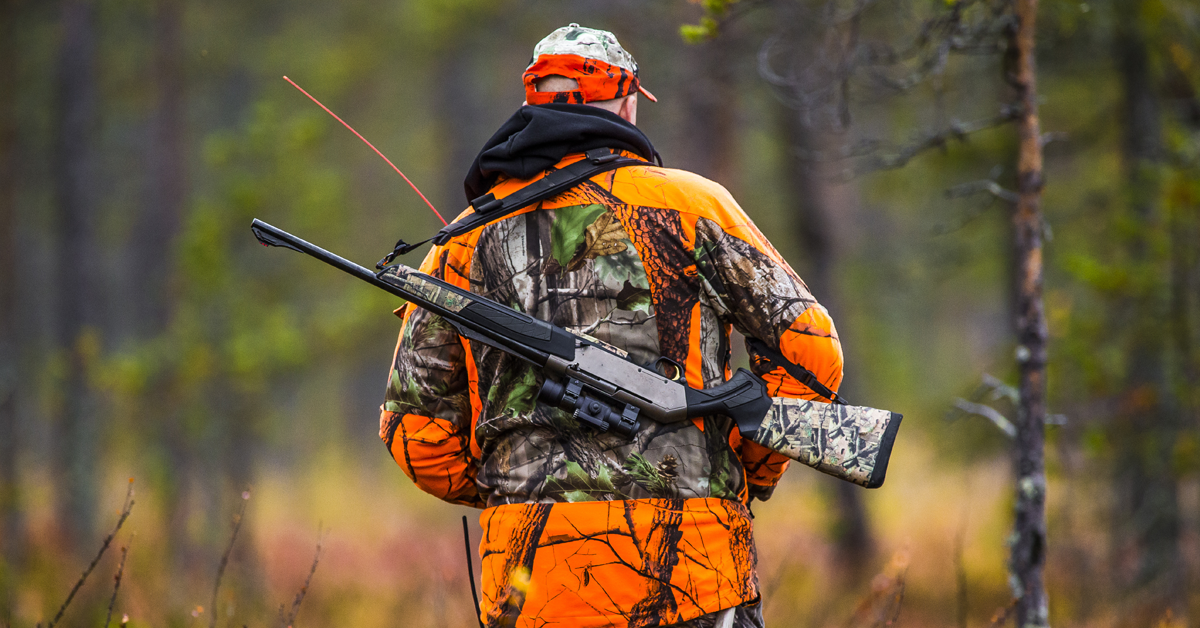Colder weather has most of us looking forward to warm and cozy things - from apple cider to pumpkin spice to indoor fires and outdoor activities. With sweater weather, comes hunting season, and in the south we take it seriously! More importantly, we also take our safety protocols seriously with required licenses, registrations and safety courses.
There is so much watchable wildlife in both Kentucky and Tennessee, ranging from birds to bobcats and everything in between. From forestry to camping to archery all with views that range from flat, icy bluegrass to the mountains in the east, every turn is a display of back country landscape waiting to be explored.
Wildlife Activity Resources
During the late fall and winter months, various resources are available to educate participants in wildlife activities. Whether it's hiking or hunting, the beauty of nature casts a truly unique glimmer on God’s country during this season. With that beauty comes the responsibility to keep it sacred and safe.
The importance of safety should be obvious. In 1999, the International Hunter Education Association (IHEA-USA) adopted a set of performance guidelines for basic hunter education courses. These standards have been used internationally by hunter education administrators to evaluate minimum core content in hunter education courses.
Every state has laws and policies in place to provide recourse for a direct or indirect personal injury or death caused by a sporting arm. But, most importantly, educational and prevention programs are provided nationwide with local support to ensure hunting remains a safe activity.
Hunter Education Resources
It probably comes as no surprise that Tennessee offers one of the longest deer hunting seasons in the country. The regulations and dates for Tennessee Hunting Season are broken down into detail here (PDF), but important dates and basic information can be located at this link.
The Kentucky Department of Fish and Wildlife Resources offers multiple ways to earn Hunter Education. You must be at least nine-years-old to take this online course. You do not have to be a resident of Kentucky to take this online course. After passing the online course, you are required to attend the Range Day to complete your hunting safety certification. That information can be found here.
For the basic gun precautions in any location, hunters should follow the “10 Commandments of Firearm Safety.” These guidelines advise hunters to engage in safe firearm handling techniques that reduce the risk of a needless gun accident.
These standards for safety must be the top priority whenever firearms are involved.
Follow the Primary Safety Rules; Think S.M.A.R.T.
- Safe Direction: Keep your firearm pointed in a safe direction at all times.
- Make Sure: Positively identify your target.
- Always Check: Know what’s beyond your target before shooting.
- Respect Firearms: Treat all firearms as if they are loaded.
- Trigger Caution: Don’t touch the trigger until you’re ready to shoot.
Additionally, the firearm safety rules below are vital for you to know (and will be required to know in order to pass education courses and receive a hunting license).
Firearm Safety Rules
- Check your barrel and ammunition.
- Unload firearms when not in use.
- Point a firearm only at something you intend to shoot.
- Don't run, jump, or climb with a loaded firearm.
- Store firearms and ammunition separately and safely.
- Triple check to make sure your gun is unloaded before transporting or cleaning it.
- Don't drink alcoholic beverages before or during shooting.
- Wear eye and ear protection when you or anyone around you is shooting.
- Never fire before being sure of your target.
When temperatures hit freezing, it’s more vital than ever to follow hunting safety rules. Before you head out, follow Where/When/Who. Let a friend or family member know where you will be hunting, when you plan to leave and return, and who you will be traveling with. Bring hand warmers to battle the cold layers for your extremities and insulated winter clothing.
Gun safety is a critical part of preventing firearm deaths as a whole, including fatal hunting accidents. While hunters are required to take mandatory hunter safety courses, gun accidents continue to occur each and every year. Accidental firearm discharges and otherwise negligent handling are a frequent cause of hunting injuries. These are easily prevented with proper safety procedures.
Unfortunately, even when we take proper safety precautions, hunting accidents can still happen. When they do, we must consider our options in holding at-fault parties accountable.
If you’ve been involved in a hunting accident, call us 24/7 at 800.844.1712 or connect with us online. Your consultation is always free!



